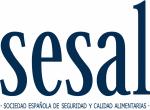Noticias de octubre de 2023
30 de octubre de 2023
Vía publiDB

II Curso Interuniversitario UVA-UBU: Enfermedades Infecciosas y Salud Global
Comunicaciones en este evento:
- El concepto One Health como estrategia indispensable para problemas emergentes
- Salud Global: nuevos retos y viejos enemigos
26 de octubre de 2023
Vía publiDB

Emergencia de patógenos resistentes: ¿causa o consecuencia de una sociedad cambiante?
Comunicación oral en 19ª Reunión Anual de la Sociedad Española de Seguridad y Calidad Alimentarias. Alimentación y cambio climático
26 de octubre de 2023
Vía publiDB
EU-RL for Bovine Tuberculosis Workshop. Edición IX
Comunicaciones en este evento:
- Closing of the meeting & conclusions
- Detecting the drawbacks of histopathology
- Towards the standardisation of MTBC variant calling analyses - where are we going?
- Comparative test for molecular characterization of MTBC (2021)
- Comparative test for detection of IFN-g for the diagnosis of bovine tuberculosis (2022)
- Comparative test for Direct DNA extraction from tissue samples and bacteriological culture (2022)
- TB in domestic rumiants: anything new for antemorten diagnosis?
- Non-tuberculosis mycobacteria: Interference on the Immunological diagnosis of bovine tuberculosis
- CEN (European Commitee for Standardization). CEN/TC 469 Animal health diagnosis analyses
- EURL databases - protocol database
- EU-RL presentation & main activities
12 de octubre de 2023
Vía publiDB
Risk Factors for Salmonella Detection in Commercial Layer Flocks in Spain
Artículo de investigación publicado en Animals
Foodborne salmonellosis remains one of the top zoonotic diseases affecting public health worldwide, and its incidence has remained stable in the last years in the European Union (EU) triggering questions on the usefulness of currently available measures to prevent its occurrence. A main focus of Salmonella national control programs is monitoring the presence of the bacteria in animal reservoirs, especially in poultry, and for this reason, thousands of samples are collected every year in poultry farms in EU countries, but the importance of certain factors in the probability of detecting Salmone…
Leer más
11 de octubre de 2023
Vía publiDB
Profile and resistance levels of 136 integron resistance genes
Investigación publicada en npj Antimircobials and Resistance
Integrons have played a major role in the rise and spread of multidrug resistance in Gram-negative pathogens and are nowadays commonplace among clinical isolates. These platforms capture, stockpile, and modulate the expression of more than 170 antimicrobial resistance cassettes (ARCs) against most clinically-relevant antibiotics. Despite their importance, our knowledge on their profile and resistance levels is patchy, because data is scattered in the literature, often reported in different genetic backgrounds and sometimes extrapolated from sequence similarity alone. Here we have generated a c…
Leer más
11 de octubre de 2023
Vía publiDB

Máster Universitario en Biología Sanitaria. Edición 2023-2024
Comunicaciones en este evento:
- Visita a un laboratorio de alta contención biológica. Grupo B
- Visita a un laboratorio de alta contención biológica. Grupo A
- Bioseguridad en laboratorios de contención biológica
10 de octubre de 2023
Vía publiDB

El laboratorio de la oveja ‘Dolly’ crea pollos resistentes a la gripe aviar con edición genética
Entrevista concedida a Salud y Bienestar. El País
Víctor Briones, investigador del Centro de Vigilancia Sanitaria Veterinaria de la Universidad Complutense de Madrid, considera que es “una prueba de concepto interesante”, pero cree que su aplicación solo sería posible “en la avicultura industrial”. Además, recuerda, “los grandes reservorios [de la gripe aviar] son las anátidas [aves, habitualmente migratorias, de la familia de los patos]”…
Leer más
10 de octubre de 2023
Vía publiDB

Seminarios VISAVET 2023
Comunicaciones en este evento:
- Micología veterinaria: mirada al pasado y retos futuros
- Cultura del cuidado en proyectos con animales
- Animalario del Centro VISAVET: presente y futuro
- Utilidad del análisis hematológico y bioquímico en la investigación con animales
- Tracing the spread of the emerging multidrug resistant Salmonella Muenchen in poultry in Israel
- orderDB review: cuándo, quién y cómo
- Introducción a la citometría de flujo
10 de octubre de 2023
Vía elpais.com
El laboratorio de la oveja Dolly crea pollos resistentes a la gripe aviar con edición genética
Pollos resistentes a la gripe aviar
Se trata de una prueba de concepto que aún se debe perfeccionar para conseguir una protección total y enfrentarse a los retos de su aplicación práctica…
6 de octubre de 2023
Vía publiDB
New insights into the pathogenesis and transmission of Brucella pinnipedialis: systemic infection in two bottlenose dolphins (Tursiops truncatus)
Artículo de investigación publicado en Microbiology Spectrum
The emergence of Brucella infections in marine mammals is a growing concern. The present study reports two cases of systemic Brucella pinnipedialis infection detected in bottlenose dolphins (Tursiops truncatus) pair stranded together in the Cantabrian coast of Spain. Both animals showed systemic lesions associated with the Brucella infection, more severe in the younger dolphin, considered the likely offspring of the other individual. Real-time PCR, bacterial culture, and whole-genome sequencing were used to detect and characterize the Brucella strains involved in both dolphins. The phylogeneti…
Leer más
5 de octubre de 2023
Vía publiDB

A retrospective study of SARS-CoV-2 seroprevalence in dogs and cats in the Community of Madrid, Spain
Frontiers in Microbiology publica este artículo de investigación
To date, susceptibility to SARS-CoV-2 infection in domestic animals including cats and dogs has been described. However, it is important to carry out passive surveillance of these animals to be aware of any changes in the outcomes of the disease in these species that may occur. In this study, we have performed a retrospective study in which we analyzed sera (n = 1,640) from random animals: dogs (n = 1,381) and cats (n = 259) belonging to both homes (n = 1,533) and animal protection centers (n = 107) in the Community of Madrid, Spain. Neutralizing antibodies were evaluated between November 2021…
Leer más
5 de octubre de 2023
Vía publiDB
Retos y oportunidades para la mejora de la vigilancia integral de la tuberculosis. Vigilancia de la TB en Sanidad Animal
Comunicación oral en Reunión del grupo de trabajo de CCAA para la prevención y Control de la Tuberculosis. División de control de VIH, ITS, Hepatitis virales
4 de octubre de 2023
Servicio de Informática y Comunicación
Lucas Domínguez distinguido como Presidente de honor del Colegio de Veterinarios de Madrid
El nombramiento tuvo lugar durante la celebración del día de San Francisco de Asis, patrón de la profesión veterinaria
Hoy miércoles 4 de octubre nuestro compañero Lucas Domínguez Rodríguez ha sido distinguido como Presidente de honor del Colegio de Veterinarios de Madrid durante la celebración del día de San Francisco de Asis, patrón de la profesión veterinaria. en el Real Jardín Botánico Alfonso XIII de la Universidad complutense de Madrid.…
Leer más
4 de octubre de 2023
Vía animalshealth.es
Los veterinarios de Madrid se reúnen por San Francisco: La veterinaria es un agente clave en la sociedad
San Francisco de Asis
El Colegio de Veterinarios de Madrid ha celebrado San Francisco de Asís con un evento en el que se han reconocido las trayectorias de Lucas Domínguez y Juan Carlos Castillejo…
2 de octubre de 2023
Vía publiDB

Identificación y caracterización de bacterias resistentes a colistina procedentes de animales de abasto en España. Evaluación de su persistencia y posible diseminación
Tesis Doctoral defendida por Pedro Miguela Villoldo en el Centro VISAVET de la Universidad Complutense de Madrid
La colistina es un polipéptido catiónico en desuso como antibiótico desde la década de los setenta debido a su toxicidad, pero que fue reintroducido en medicina humana para tratar infecciones causadas por bacterias Gram negativas multirresistentes, siendo categorizado como antimicrobiano de “último recurso”. En medicina veterinaria la colistina se ha utilizado desde su descubrimiento para el tratamiento de infecciones en animales, especialmente las diarreas post-destete causada por E. coli en lechones y terneros o para el tratamiento de colibacilosis en aves.
Inicialmente, la resistencia a …
Leer más
2 de octubre de 2023
Vía publiDB

Bioseguridad y riesgo biológico
Comunicación online en Curso de Bioseguridad y Prevención de Riesgos Laborales en los Laboratorios de Microbiología
1 de octubre de 2023
Vía publiDB

Quantitative risk assessment of African swine fever introduction into Spain by legal import of swine products
Artículo de investigación publicado en Research in Veterinary Science
African swine fever (ASF) is currently threatening the global swine industry. Its unstoppable global spread poses a serious risk to Spain, one of the world`s leading producers. Over the past years, there has been an increased global burden of ASF not only in swine but also swine products. Unfortunately, many pigs are not diagnosed before slaughter and their products are used for human consumption. These ASF-contaminated products are only a source for new ASF outbreaks when they are consumed by domestic pigs or wild boar, which may happen either by swill feeding or landfill access. This study p…
Leer más
Noticias relacionadas en otros medios:
- Estudian el riesgo de introducción de peste porcina africana en España por importación legal de productos porcinos - animalshealth.es
1 de octubre de 2023
Vía publiDB
Translating eco-evolutionary biology into therapy to tackle antibiotic resistance
Investigación publicada en Nature reviews. Microbiology
Antibiotic resistance is currently one of the most important public health problems. The golden age of antibiotic discovery ended decades ago, and new approaches are urgently needed. Therefore, preserving the efficacy of the antibiotics currently in use and developing compounds and strategies that specifically target antibiotic-resistant pathogens is critical. The identification of robust trends of antibiotic resistance evolution and of its associated trade-offs, such as collateral sensitivity or fitness costs, is invaluable for the design of rational evolution-based, ecology-based treatment a…
Leer más


